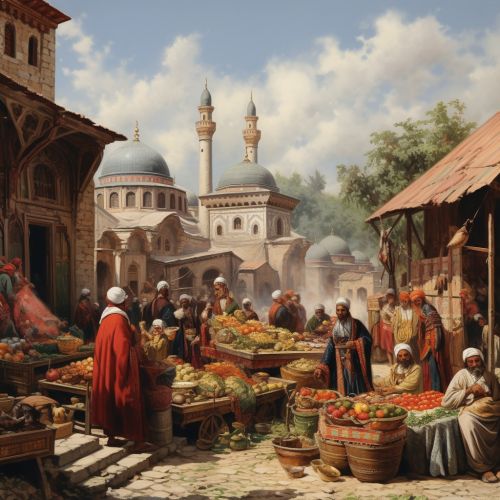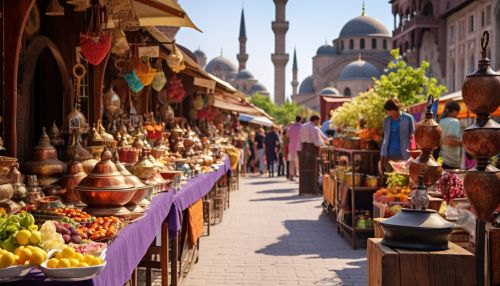Economy of Turkey
Overview
The Economy of Turkey is classified as an emerging market and developed country by various international institutions. It is among the world's leading producers of agricultural products; textiles; motor vehicles, ships and other transportation equipment; construction materials; consumer electronics and home appliances.
History
The history of Turkey's economy can be traced back to the Ottoman Empire, which was an agrarian state with a predominantly agricultural economy. The industrialization process in Turkey started in the 19th century, during the final decades of the Ottoman Empire. The period of rapid economic growth and industrialization in Turkey started in the early 1980s, following the liberalization of the economy.
Economic Sectors
Agriculture
Agriculture is a significant sector in Turkey's economy, contributing about 8% to the country's GDP. Turkey is one of the world's largest producers of a variety of agricultural products, including cereals, pulses, industrial crops, sugar, nuts, fresh and dried fruits, vegetables, olive oil, and livestock products.
Industry
The industrial sector is a major component of the Turkish economy, contributing about 34% to the country's GDP. The sector is dominated by manufacturing, which accounts for about 20% of GDP. Major industries in Turkey include automotive, petrochemicals, electronics, textiles, food processing, and shipbuilding.
Services
The services sector is the largest component of the Turkish economy, contributing about 58% to the country's GDP. The sector includes tourism, banking, insurance, retail, telecommunications, and information technology.
Economic Policies
Turkey's economic policies have evolved over time, reflecting changes in the global economic environment and the country's economic development objectives. The government has implemented various economic reform programs, aimed at liberalizing the economy, promoting private sector development, and integrating the Turkish economy into the global economy.
Economic Performance
Turkey's economy has experienced periods of strong growth and periods of economic crisis. The country's economic performance has been influenced by various factors, including global economic conditions, domestic economic policies, and political stability.
Challenges and Opportunities
The Turkish economy faces several challenges, including high inflation, high unemployment, and a large current account deficit. However, the country also has significant opportunities for economic growth, including a large domestic market, a strategic geographic location, and a young and dynamic workforce.
See Also


